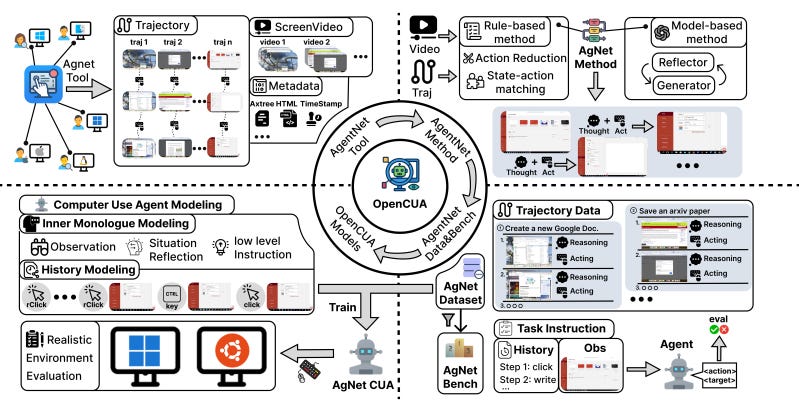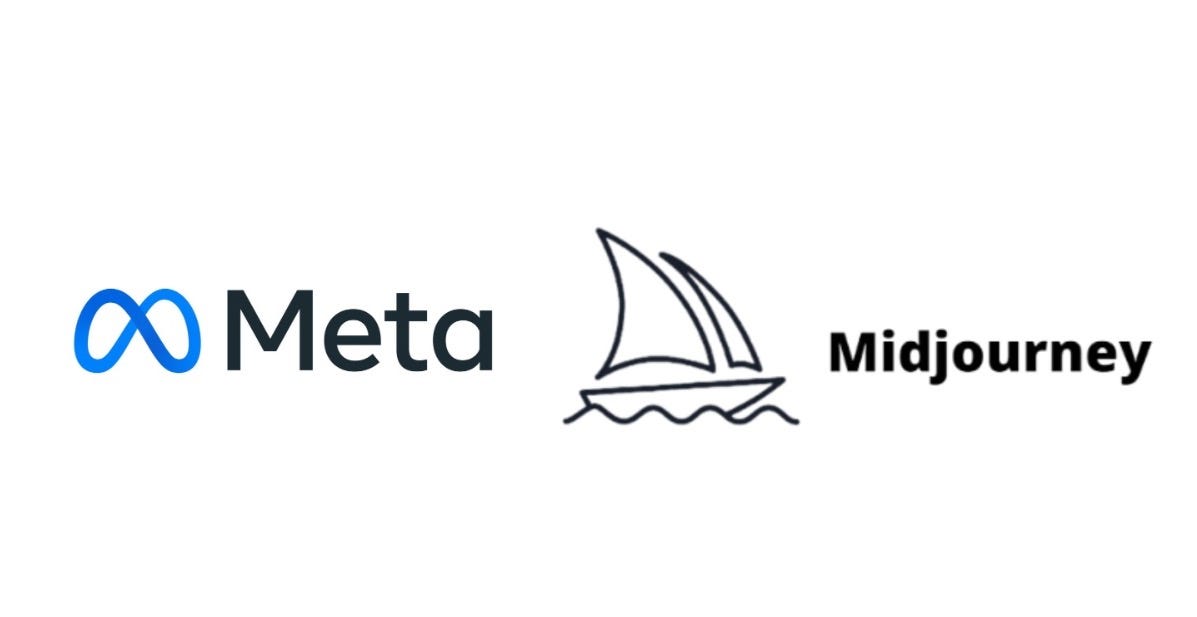This Week in AI - Week of 24th Aug 2025
This week, the AI landscape was a whirlwind of strategic partnerships, humbling benchmark results, and major global expansion. We saw open-source AI making huge strides, a critical reality check for a top-tier model, and a surprising struggle for Europe's booming space tech sector. Here’s everything you need to know.
OpenCuAS Challenges Big Tech with Open-Source Agents that Rival Proprietary Models
Here’s What You Need to Know:
OpenCuAS, a new open-source framework, has launched computer-use agents that are performing on par with or even outperforming proprietary models from giants like OpenAI and Anthropic. This framework provides an accessible "training recipe" and a large-scale dataset, democratizing the development of agents capable of automating complex tasks across multiple operating systems.
Why It’s Important for AI Professionals:
This is a game-changer for the open-source community. OpenCuAS demonstrates that the "black box" approach of proprietary models is not the only path to building powerful AI agents. For developers, this means a more transparent and customizable toolkit. It also validates the power of collective knowledge in the AI space and could accelerate the development of specialized, domain-specific agents that are more tailored and auditable than their closed-source counterparts.
Why It Matters for Everyone Else:
The success of OpenCuAS lowers the barrier to entry for businesses and researchers who want to build their own AI agents without paying hefty licensing fees. This could lead to a proliferation of new AI applications, fostering greater competition and innovation in the market. It also addresses growing concerns about AI transparency, as the open-source nature of these agents allows for a deeper understanding of how they work, which is crucial for building trust.
Aish’s Prediction:
This is a classic 'innovator's dilemma' in action. While the big players focus on building the largest, most generalized models, the open-source community is building highly capable, specialized agents from the ground up. I’ve seen this playbook before in the open-source software world. My prediction is that, a significant percentage of new, mission-critical AI applications, especially in fields like enterprise automation and robotics, will be built on open-source frameworks like OpenCuAS. Why? Because businesses want control, transparency, and the ability to customize. Open-source the future of applied AI!
Europe’s Space Tech Data Boom Faces a Critical Commercialization Gap
Here’s What You Need to Know:
Despite a booming space tech sector and a wealth of data from Earth observation satellites, Europe is struggling to find commercial buyers for this valuable information. A new report highlights a major disconnect between the space industry and other sectors like agriculture, finance, and logistics, which are not leveraging space-derived data to its full potential.
Why It’s Important for AI Professionals:
The lack of commercial demand represents a massive untapped opportunity for AI and data professionals. The problem isn't a lack of data; it’s a lack of intelligent applications to make that data actionable. This is where AI, particularly machine learning and computer vision, can bridge the gap. AI practitioners can develop models to analyze satellite imagery for crop health, monitor infrastructure for maintenance, or track logistics in real-time. The challenge is immense, but the potential is even greater.
Why It Matters for Everyone Else:
The failure to commercialize this data means that valuable insights from climate change patterns to urban planning are being underutilized. If companies and governments can't make sense of this data, it's a lost opportunity to solve some of the world's most pressing problems. Bridging this gap with AI would not only create a new, multi-billion-dollar industry but also lead to more efficient and sustainable practices across a wide range of sectors.
Aish’s Prediction:
This is a perfect example of a "data rich, insight poor" problem. It's a gold mine waiting for the right tools. I’m an investor, and this is exactly the kind of market inefficiency I look for. The demand isn't explicit yet, but it's there, buried under a lack of understanding and accessibility. Soon, we will see a new wave of venture-backed startups with AI at their core emerge to become the "middleware" between satellite data providers and end-user industries. They won’t be building rockets; they’ll be building the AI models that make space data valuable.
Meta Licenses Midjourney’s Visual Tech, Signaling a Pivot to 'Partner with the Best'
Here’s What You Need to Know:
In a surprise move, Meta announced a partnership with Midjourney, licensing its "aesthetic technology" for future AI models and products. This collaboration, led by Meta's new Chief AI Officer, Alexandr Wang, is a strategic pivot to enhance Meta’s generative AI capabilities, particularly in image and video creation, to compete more effectively with rivals.
Why It’s Important for AI Professionals:
This partnership underscores a critical shift in the AI development model. Instead of relying solely on in-house R&D, major players are now leveraging the specialized expertise of innovative startups. For AI practitioners, this means the ecosystem is becoming more modular. It could lead to a future where models are built from a mix of proprietary, open-source, and licensed components, creating new opportunities for specialized AI companies.
Why It Matters for Everyone Else:
This deal could dramatically improve the quality of AI-generated content across Meta's platforms, including Instagram, Facebook, and WhatsApp. Users can expect more visually stunning, high-quality images and videos generated from simple text prompts. For businesses, this translates to more powerful and accessible tools for marketing and content creation, potentially democratizing the ability to produce compelling visual media without expensive designers or videographers.
Aish’s Prediction:
This is a huge reality check for big tech. The dominant philosophy used to be that if you had enough talent and capital, you could just build a better model yourself. Meta's move here shows that's not always the case, especially when it comes to highly specialized domains like aesthetic quality. I've been saying for a while that the future of AI isn't about one monolithic model winning it all. It's about a federation of specialized models, each excelling at a specific task. Meta is essentially buying a shortcut. We'll see more of these "component-level" partnerships over the next year, with big players licensing everything from text-to-speech expertise to specialized reasoning modules from smaller, more nimble companies.
MCP Universe Benchmark Reveals GPT-5's Real-World Shortcomings
Here’s What You Need to Know:
A new benchmark, the MCP Universe, has cast a shadow on the performance of even the most advanced AI models. Testing models on complex, multi-step tasks in real-world environments such as navigating a browser or managing a Git repository the benchmark found that GPT-5 had a success rate of only 43.7%. Other models performed even lower.
Why It’s Important for AI Professionals:
The MCP Universe is a wake-up call for the entire AI community. It moves beyond traditional, isolated benchmarks and evaluates models on their ability to perform agentic, real-world tasks that require planning, tool use, and error recovery. This data highlights a fundamental gap between a model's impressive reasoning capabilities and its practical reliability in complex workflows. It’s a clear signal that the next frontier for AI is not just about raw performance but about developing robust, reliable agents.
Why It Matters for Everyone Else:
For business leaders and investors, these results are a reality check. While AI promises to automate complex workflows, this data shows we’re still a long way from a fully autonomous, reliable AI workforce. Businesses should be cautious about deploying AI agents without significant human oversight and should focus on using AI to augment human capabilities rather than replace them entirely. The promise of full automation is not yet a reality.
Keep reading with a 7-day free trial
Subscribe to AI with Aish to keep reading this post and get 7 days of free access to the full post archives.






